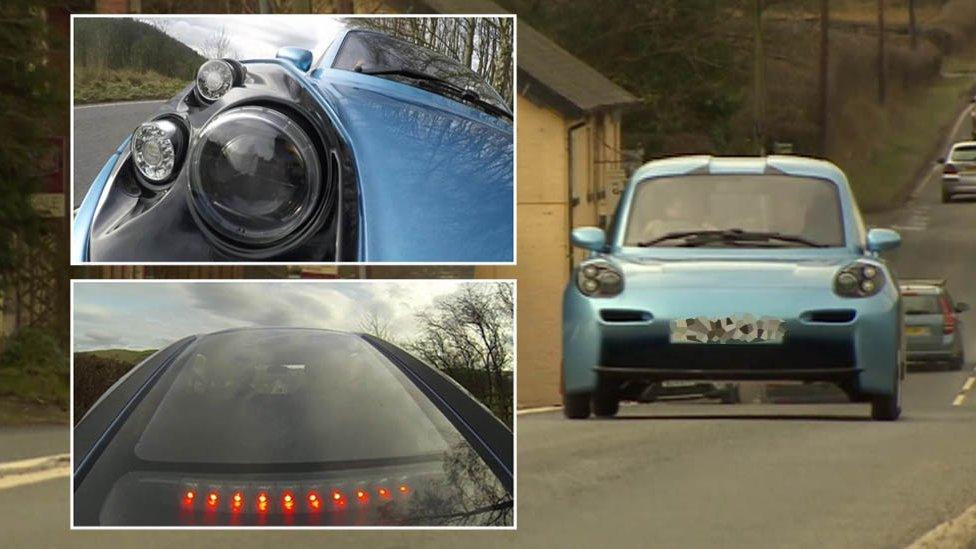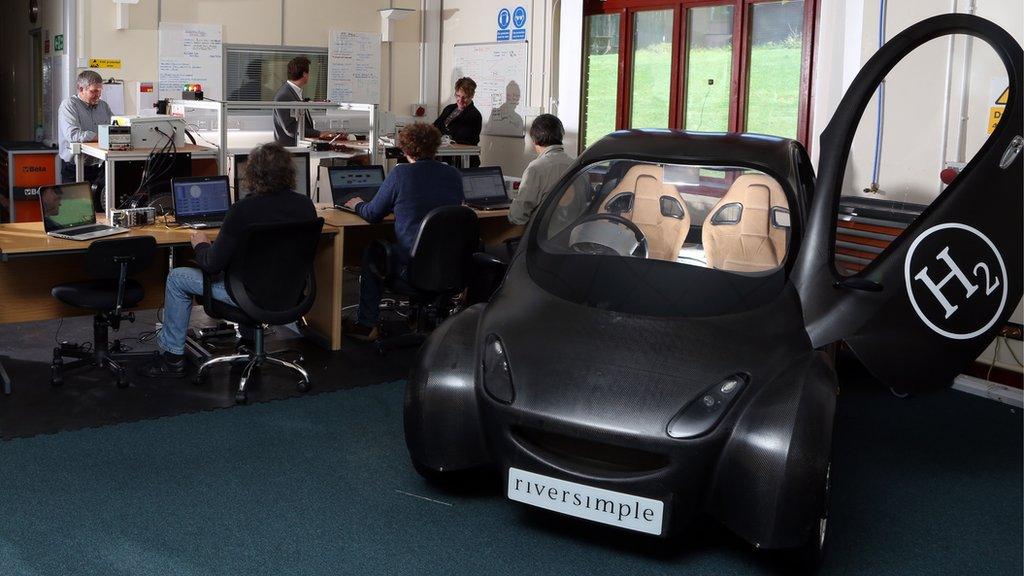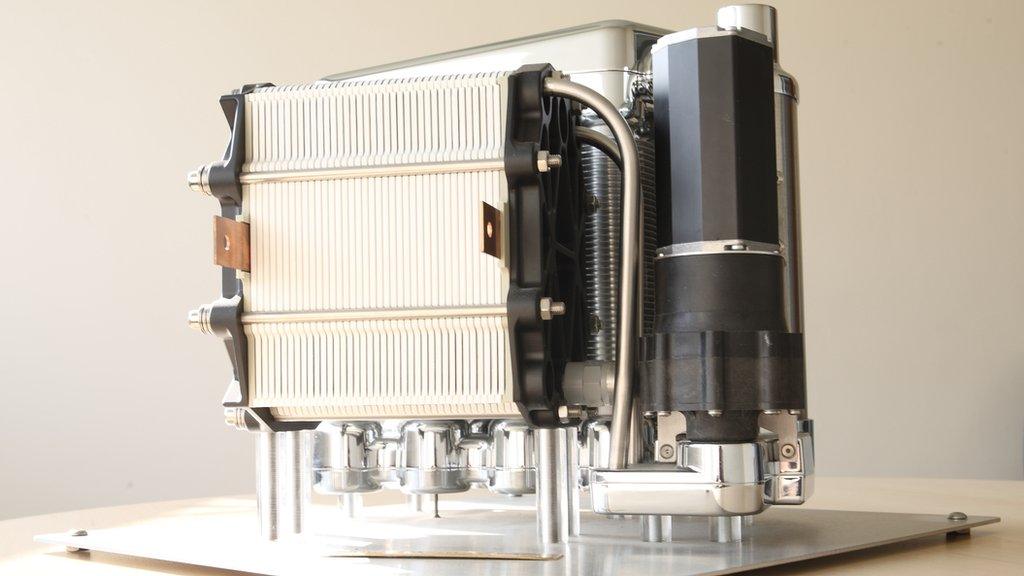Welsh-made hydrogen car prototype unveiled for trial
- Published
The new Rasa hydrogen-powered car in action
The prototype for a new Welsh-made hydrogen-powered car has been unveiled.
The two-seater Rasa was developed in Llandrindod Wells, Powys, by Riversimple Movement Ltd.
Its road-legal prototype does 0-60mph (96kmh) in 10 seconds, with its only output water.
The Rasa, which received a £2m Welsh grant in 2015, will go on trial for 12 months later this year, with the final model set for release in 2018.
Hugo Spowers, founder of Riversimple, said the prototype marked a "key milestone" in bringing the Rasa to market.
"The car is simple, light and fun in every respect," he said.
If the trial - to be funded by a £1.6m European Union grant - proves successful, the firm has said the next step would be to set up volume production in a factory employing 220 people.
Riversimple believes the Rasa will be the most efficient vehicle in the world.

Weighing 580kg (91 stone) - about the half the weight of a small petrol or diesel car - it has a potential range of up to 300 miles (482 km) on 1.5kg of hydrogen - a fuel-economy equivalent of 250mpg.
The car has a top speed of 60 mph (96kmh).
It works by passing hydrogen through the fuel cell, where it combines with oxygen to form water and electricity to drive motors positioned in each of the four wheels.
Prof Garel Rhys, who is part of the Welsh government's steering group on the low-carbon vehicle sector, said the company was "at the forefront".
'Cutting edge'
"Hydrogen fuel cell technology is in its infancy," he added, "and they (Riversimple) are at the cutting-edge".
Prof Peter Wells, of the Centre for Automotive Industry Research and Cardiff Business School, said the team had reduced the weight of the car to the "absolute minimum".
"This allows it to run on a very small fuel cell, compared to the big car manufacturers," he said.
The car will not be sold but offered under a leasing agreement, with repairs, maintenance, insurance and fuel expenses covered by a fixed monthly-fee, with the aim of lowering the cost of hydrogen-powered motoring.
- Published9 June 2015

- Published13 September 2010
- Published4 October 2013

- Published26 March 2015
